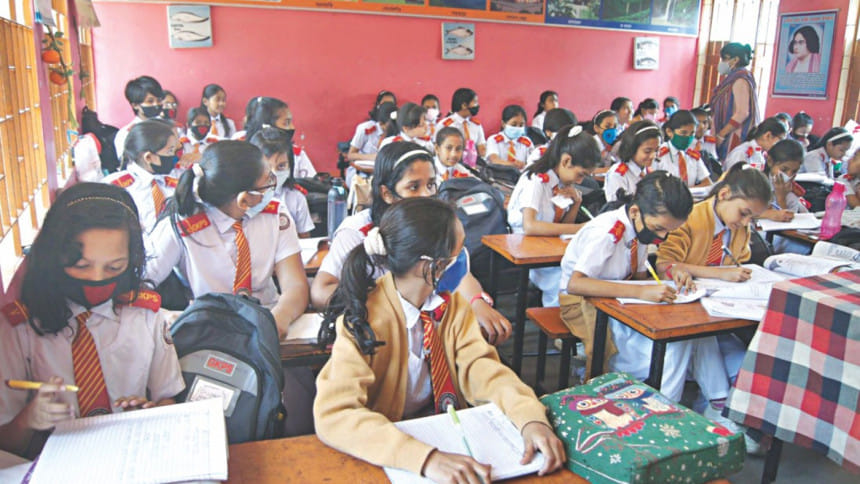Cancellations of JSC-JDC exams

After almost five months of postponement of classes and uncertainty regarding the schedule of school examinations, this year's Junior School Certificate (JSC), Primary Education Completion Examination (PECE) and their equivalent exams have finally been cancelled. Moreover, Prime Minister Sheikh Hasina has suggested that students might be promoted without having to sit for class final tests. We welcome this move, which would certainly bring some respite to anxious students worried about finishing their syllabuses and performing well in the highly competitive exams, with schools closed for the better part of the year due to the pandemic.
Exams are nerve-wracking even during non-Covid times. The pandemic has exposed our students to further mental and emotional vulnerabilities, as they are stuck at home for long periods of time with no interaction with their peers, worrying about an uncertain future. Compelling them to sit for exams for which they were unprepared for would have been cruel, to say the least, and we appreciate that officials have now been asked to devise alternative evaluation methods for promotions for all grades. We believe this is an opportune moment for the education sector to come up with methods of assessments that don't rely on rote memorisation but rather promote critical thinking among students, and enable them to engage analytically with knowledge gained from their textbooks, and indeed, the outside world. The latter ought to be a prequisite of education, whether or not there is a pandemic.
The education ministry and primary and mass education ministry have extended the closure of educational institutions until October 3, following recommendations by the National Technical Advisory Committee on Covid-19. This, too, is a necessary move to ensure the safety of students and their families and to keep the transmission of Covid-19 in check. However, this prolonged closure will further negatively impact students who lack access to digital devices, TVs and radios and hence cannot reap the benefits of alternative programmes introduced by the government since the onset of Covid-19. The ministries must address this digital divide urgently or risk mass dropouts, particularly as poor families, struggling to tide over the pandemic, put their children to work or marry their daughters off. As a result of the cancellation of the PECE, it was also announced that the government will not provide any scholarship to over one lakh students of primary schools and madrassas across the country that are offered on the basis of these results. We feel this decision could also push students from disadvantaged backgrounds out of education, and we urge the government to come up with alternative methods to assess the needs of students and grant scholarships to the most deprived candidates.
Moreover, the fate of HSC students still hang in the balance, and they risk losing a year if the Covid situation does not improve in the near future. If the situation prolongs for much longer, the ministry can consider opting for predictive grades based on previous class exams. At any rate, it should explore all possibilities while engaging with experts as well as students on how to best mitigate the problem.

 For all latest news, follow The Daily Star's Google News channel.
For all latest news, follow The Daily Star's Google News channel. 




Comments